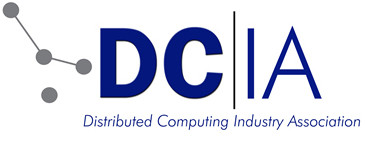In This Issue
- 2016 Make-or-Break
- VR Rising: A Webinar
- Biz Incorporates IoT
- Report from the CEO
- WDC Ready for IoT?
- Data Storage / Games
- EDDS Chooses NetApp
- Open Hybrid Clouds
- Decouple Price & Perf
- Intelligent Biz Cloud
- Three Keys to DevOps
- COA – Are We There?
- Republicans and NN
- Obama & ISIS Online
- Autos Cybersecurity
- Israel Protects Cars
- Coming DCIA Events
2016 Is Make-or-Break Year for Virtual Reality
Excerpted from Virtual Rendezvous Blog by Charles Perkins
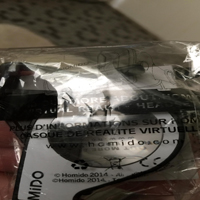 Having just settled back into the rhythms of a less-crazy life after the frenetic almost hallucinogenic pace of CES in Las Vegas, NV where DCIA’s theme this year was the future of virtual reality (VR), I will try briefly to give you the few highlights that stuck in my straw-from-firehose view of events.
Having just settled back into the rhythms of a less-crazy life after the frenetic almost hallucinogenic pace of CES in Las Vegas, NV where DCIA’s theme this year was the future of virtual reality (VR), I will try briefly to give you the few highlights that stuck in my straw-from-firehose view of events.
Sixense CEO Amir Rubin and the panels he frequented agreed that real VR is on the way this year.
Oculus Rift is finally shipping in April (but the awesome lightweight hand-band called Touch delayed by as much as another 6 months).
Vive, Sony, and numerous smaller players are also poised to go mainstream this year; Samsung’s Gear VR mobile headset will be premiering; and Amazon will sell to hundreds of thousands of mainstream and early experimenters.
Carrying my VR headset around with me, I introduced dozens of just plain folk manning the doors and attending the conference (even one bartender who had one from a year back already).
My impressions included: 1) excitement after I explain they can turn left/right, then up/down, then around 360 degrees; 2) with audio a sense of really being elsewhere (I mostly used Jurassic World Dino demo)… Read More
VR Rising: What Industry Leaders Need to Know
Excerpted from Cablefax Press Announcement
 The virtual reality (VR) marketplace at CES expanded by 77 percent this year.
The virtual reality (VR) marketplace at CES expanded by 77 percent this year.
It is clear that VR and technology surrounding it is a hot topic in 2016.
The upcoming Cablefax Webinar, Virtual Reality Webinar: Are You Ready to Capitalize on TV’s Next Big Leap? on Tuesday January 19th from 2:00 to 3:30 PM ET will get participants up-to-speed on how companies are adopting VR, how the technology could change advertising, and how new VR opportunities abound for media and entertainment companies.
Don’t let this chance to understand and reach consumers pass you by.
“It’s abundantly clear that 2016 will be the year of Virtual Reality and the TV business seems determined not to be left behind, with numerous programmers and distributors making big moves now to capitalize on what could become the ‘next big thing,'” says Michael Grebb, Publisher, Cablefax.
Grebb will host the webinar with panelists Melinda Witmer, EVP, Chief Video Officer and Chief Operating Officer at Time Warner Cable; Cory Key, Interactive Creative Director for Discovery Communications; and Julian Reyes, VR Producer at Fusion. Attendees will learn the VR basics including how the technology works and what content suits it best… Read More
Major Business Processes Incorporate Internet of Things
Excerpted from TelecomTV Insights Report
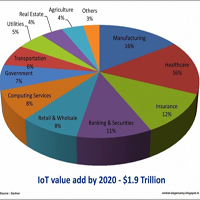 More than half of major new business processes and systems will incorporate some element of the Internet of Things (IoT) by 2020, according to Gartner.
More than half of major new business processes and systems will incorporate some element of the Internet of Things (IoT) by 2020, according to Gartner.
The impact of the IoT on consumers’ lives and corporate business models is rapidly increasing as the cost of “instrumenting” physical things with sensors and connecting them to other things – devices, systems and people – continues to drop.
“Uses of the IoT that were previously impractical will increasingly become practical,” said Roy Schulte, Vice President and Distinguished Analyst at Gartner.
“The IoT is relevant in virtually every industry, although not in every application.”
“There will be no purely ‘IoT applications.’ Rather, there will be many applications that leverage the IoT in some small or large aspect of their work.”
“As a result, business analysts and developers of information-centric processes need to have the expertise and the tools to implement IoT aspects that play a role in their systems.” Gartner has made four more predictions for the IoT… Read More
Report from DCIA CEO Marty Lafferty
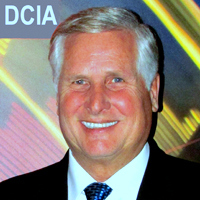 Internet of Things (IoT) Asia returns in 2016 with fresh insights on IoT developments, not only in Singapore, but also around the world.
Internet of Things (IoT) Asia returns in 2016 with fresh insights on IoT developments, not only in Singapore, but also around the world.
This year’s theme is an important one — Closing the Gap: From Vision to Reality.
The third annual IoT Asia conference, taking place on March 30th and 31st at the new Singapore EXPO, aims to further advance conversations and ideas on this rapidly advancing technology movement and how it will impact our lives by delving into the real issues beyond the possibilities.
What’s new for 2016?
A fresh focus on design dimensions: learn how design is being applied and discover new ideas you can apply in your organization.
Blockchain applications in IoT: gain insights on the business and industry implications, because there’s more to blockchain than fintech or cryptocurrencies.
And developments in smart retail: thought leaders in the Smart Retail Forum (SRF) and its showcase at the exhibition will present useful examples to spur your thinking.
Backed by insights from IoT Asia’s International Advisory Panel (IAP), this year’s event aims to bring you more critical perspectives by sharing real use-cases and case studies, adoption experiences, and challenges faced by practitioners in the field – insights that address the real issues and questions you have.
The conference will feature five tracks, covering: Smart Cities – highlighting urban projects from around the world, their impact, significance, and lessons learned;
IoT Data Analytics – exploring how different organizations are deploying analytical techniques to derive value and business insights, and their experiences from the front-lines;
Design Applications – zeroing in on the value of applying design perspectives in IoT deployments, from product and process design to user and service experience design, supported by examples;
Wearables – featuring discussions on issues like usability, integrated services, and value for individuals and enterprises, as well as emerging applications; and
Industrial IoT – with project case studies, initiatives and insights from test-beds, and new models for IoT deployments in the industrial space.
Register now for the All-Access Conference Pass at early-bird rates to enjoy maximum benefits at IoT Asia 2016. Share wisely, and take care.
IoT Era Is Here – Is Washington Ready?
Excerpted from Huffington Post Blog by Alex Wirth
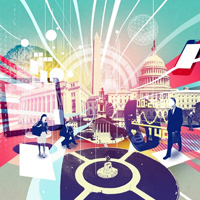 When I first walked onto the showroom floor of the Consumer Electronics Show (CES) I was simply overwhelmed.
When I first walked onto the showroom floor of the Consumer Electronics Show (CES) I was simply overwhelmed.
From cages filled with flying drones (including one that could fly a human) to long lines of people waiting to try the new Oculus Rift, it was clear that CES represented a glimpse into the future.
There were thousands of displays and demonstrations of products, but Samsung’s exhibit caught and retained my attention because it featured real world examples of the Internet of Things (IoT).
In the last 42 years the Internet has primarily been used to connect computers, share information, and its resources were accessed via a mouse and a keyboard.
It was evident walking through the Samsung exhibit that this was no longer the case.
The Internet has become connected to more and more things in our everyday life and we are only beginning to realize the opportunities and challenges that it presents.
The IoT has the ability to better monitor, track, and improve people’s health. Wearable technology can send real-time information to doctors… Read More
Data Storage and Gaming Fuel Cloud-Computing Market
Excerpted from WhaTech Report by Paul Hosking
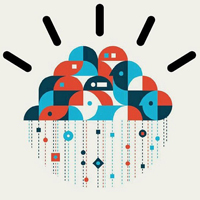 Cloud computing has exploded in recent years, with the Global Language Monitor (GLM) even naming it the “Phrase of the Year” for 2009.
Cloud computing has exploded in recent years, with the Global Language Monitor (GLM) even naming it the “Phrase of the Year” for 2009.
Also known as “on-demand computing,” it leverages the power of remote servers to execute applications, upload and download data, and perform other operations.
Instead of running applications on a local machine, for instance, companies can run them from a remote server, relaying the data to their computer.
Even if you are unfamiliar with the nuances of cloud computing, chances are you’ve used it at some point in time.
Google Drive, Microsoft OneDrive, and Apple iCloud are just a few examples of well-known cloud platforms.
Other big names in the cloud-computing industry include Amazon, IBM, Comcast, Cisco, Oracle, and HPE.
According to the Global Cloud Storage Market Forecast 2015-2021 report published by ReportsWeb, the cloud data storage market is expected to grow at 29% compound annual growth rate (CAGR) from 2015 through 2021… Read More
ESDS Software Enables Auto-Scaling Cloud with NetApp
Excerpted from Financial Express Report
 ESDS Software Solution, a managed cloud and data center service provider has partnered with NetApp for the storage solutions.
ESDS Software Solution, a managed cloud and data center service provider has partnered with NetApp for the storage solutions.
ESDS, with its primary data center in Mumbai (Mahape) and its secondary data center located in Nashik, was looking out for a fully integrated solution that could consistently deliver high performance with low latency and also provide with high capacity that is designed to scale out without disruption.
“We are extremely happy to have partnered with NetApp.”
“It was a challenge for us to find the right player that would help us set-up an enterprise storage system to achieve high performance with low latency and also provide high capacity that could scale out without disruption.”
“Our concept of floating virtual machines across data centers is a very unique and innovative concept, therefore the storage technology required to make this concept successful had to be scalable and flexible.”
“NetApp has helped us to find exactly what we were looking for and we are hopeful of reducing costs as we go along,” said Piyush Somani, Founder and CEO, ESDS. Leading organizations worldwide count on NetApp to manage and store their data… Read More
How Open Hybrid Clouds Change Cloud Computing
Excerpted from CTOvision Report by Rick Delgado
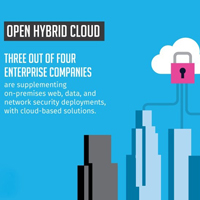 The cloud has evolved quickly. Businesses have weighed the perks of private, public, and even hybrid clouds.
The cloud has evolved quickly. Businesses have weighed the perks of private, public, and even hybrid clouds.
If those options weren’t enough, here comes the open hybrid cloud.
An open hybrid cloud leverages the benefits of accessing data and processes across private and public implementations, while facilitating open source development.
It is a model that has expanded within the military. In the search for costs savings, the Department of Defense (DoD) has experimented with many new cloud models: on-premise, government-provisioned clouds; on-premise, government-owned cloud, managed by an outside commercial vendor; and internal clouds completely managed by a commercial provider
A hybrid approach, the Forge.mil program combines various enterprise services, used by technology professionals at the Department of Defense (DoD).
It has been created by the Defense Information Systems Agency (DISA).
The DoD’s technology development community can use open source software and collaborate privately… Read More
Decoupling Price and Performance in Storage
Excerpted from Virtualization Review Report by Jon William Toigo
 OK, I admit to being a bit of a science geek, especially when it comes to technology. I like my cup of truth with a side of empirical data, especially when supplemented by repeated experiments that yield identical results.
OK, I admit to being a bit of a science geek, especially when it comes to technology. I like my cup of truth with a side of empirical data, especially when supplemented by repeated experiments that yield identical results.
In short, I like it when the foundation for a knowledgeable opinion is established using the scientific method; that is, when an opinion is based on a set of demonstrably causal theories with lots of data to validate them.
This kind of knowledge is so much more persuasive than the combined ruminations of analysts and pundits whose “experience and judgment,” proffered in lieu of scientific data, may or may not qualify them to actually know anything.
Unfortunately, the “woo peddlers” continue to proliferate in contemporary technology discussions, making my life much more challenging.
You know what I’m talking about: server virtualization was supposed to fix the problems created by distributed computing, just as distributed computing was supposed to improve upon the perceived limitations of centralized mainframe computing models.
These were never scientifically-validated assertions, yet they were opinions that quickly took on the appearance of wisdom… Read More
Beyond Hybrid: The Intelligent Business Cloud
Excerpted from Baseline Magazine Report by Jack Sepple
 More and more organizations rely increasingly on the cloud. Corporations ranging from Internet start-ups to established companies such as Daimler and John Deere use cloud to connect business processes, information, and devices, thereby increasing the value of each customer experience.
More and more organizations rely increasingly on the cloud. Corporations ranging from Internet start-ups to established companies such as Daimler and John Deere use cloud to connect business processes, information, and devices, thereby increasing the value of each customer experience.
These companies no longer view only technology as a service. They view everything as a service, and are maneuvering more and more rapidly on an increasingly larger scale.
But the reality is that many enterprises are still not getting everything they need from the cloud.
For most companies in most industries, the cloud has created nearly as many complications as it has solutions, and they must contend with managing a jumble of separate cloud accounts.
In addition to the plethora of accounts, there are private clouds, public clouds and hybrid clouds.
And they’re all operating next to legacy mainframes, distributed computing and virtual computing environments.
Few IT leadership teams can say for sure what their organizations spend on the cloud – or why… Read More
Three Keys to DevOps Success
Excerpted from CloudTech Report by James Bourne
 A business-led approach, collaborative IT resources and adopting key controls are the three main factors to DevOps success – but many UK businesses are still struggling with it, according to a new study from CA Technologies.
A business-led approach, collaborative IT resources and adopting key controls are the three main factors to DevOps success – but many UK businesses are still struggling with it, according to a new study from CA Technologies.
The report, entitled ‘Assembling the DevOps Jigsaw’ which polled more than 500 respondents from Europe, found only one in 10 (11%) UK organizations are in the category of ‘advanced DevOps adopters,’ defined as organizations that have implemented DevOps practice across at least six different business areas.
Swiss businesses (23%) are the furthest advanced, but other European countries are not noticeably better, with Spain (13%), France (12%), Italy (12%) and Germany (10%) all struggling.
Yet the majority of UK businesses are tuning in to DevOps methodology.
More than two thirds of companies (67%) have implemented DevOps in some capacity, such as failing fast, and streamlining IT to free up resources for digital investment.
The reason for companies making initial steps but not going further revolves around the difficulties breaking down established barriers. 68% of those polled said it was important to remove the traditional walls between Dev and Ops teams… Read More
Compliance Oriented Architecture – Are We There Yet?
Excerpted from Computer Weekly Report by Clive Longbottom
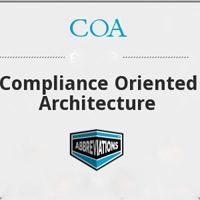 Over a decade ago, Quocirca looked at the current means of securing data, and decided that there was something fundamentally wrong.
Over a decade ago, Quocirca looked at the current means of securing data, and decided that there was something fundamentally wrong.
The concept of solely relying on network edge protection, along with internal network and application defenses misses the point.
It has always been the data that matters – in fact, not really even the data, but the information and intellectual property (IP) that data represents.
To our minds, enterprise content management (ECM) has not lived up to expectations around information security: it only dealt with a very small subset of information; it was far too expensive; and has not evolved to support modern collaboration mechanisms.
It is also easy to circumvent its use, and far too easy for information assets to escape from within its sphere of control.
As an increased need for decentralized collaboration evolved and cloud computing offered new ways of sharing information, the problem became more complex. There was an increase in the difficulty of defining the network edge as the value chain grew… Read More
Republicans to Pick-Up Fight against Net Neutrality
Excerpted from The Hill Report by Mario Trujillo and David McCabe
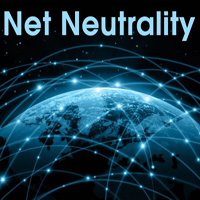 House Republicans will resume their nearly yearlong effort to nibble away at the edges of the Federal Communications Commission’s (FCC) Internet rules.
House Republicans will resume their nearly yearlong effort to nibble away at the edges of the Federal Communications Commission’s (FCC) Internet rules.
The House Energy and Commerce technology subcommittee on Tuesday is slated to debate two bills regarding net neutrality — one that would prevent the government from regulating Internet service prices and another that would exempt small Internet providers from some transparency rules.
Republicans tried but were unable to include rate regulation language in the spending bill approved in December.
FCC Chairman Tom Wheeler has said numerous times the commission has no intention of regulating the rates that customers are charged for Internet service under net neutrality rules.
But net neutrality supporters said the language debated during the appropriations process was vague and could potentially blunt other FCC authority.
The legislation to be debated Tuesday simply says: “Notwithstanding any other provision of law, the Federal Communications Commission may not regulate the rates charged for broadband Internet access service… Read More
Obama Shifts Online Strategy on ISIS
Excerpted from NY Times Report by Gardiner Harris and Cecilia Kangja
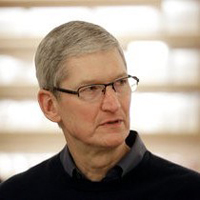 The Obama administration on Friday announced an overhaul of its efforts to respond to online propaganda from the Islamic State after months of acknowledgments that it had largely failed in its attempts to counter extremist recruitment and exhortations to violence on social media.
The Obama administration on Friday announced an overhaul of its efforts to respond to online propaganda from the Islamic State after months of acknowledgments that it had largely failed in its attempts to counter extremist recruitment and exhortations to violence on social media.
The administration has emphasized that it needs the assistance of some of the nation’s biggest technology companies, and a group of top White House and national security officials flew to California on Friday to plead their case with executives.
In a reflection of just how urgent the White House considers the efforts, the discussions involved officials like Denis R. McDonough, the White House chief of staff; Attorney General Loretta E. Lynch; James R. Clapper Jr., the director of national intelligence; James B. Comey, the F.B.I. director; and Lisa Monaco, the president’s counter-terrorism adviser.
They met with Timothy D. Cook, Apple’s chief executive, as well as top executives from Facebook, Twitter, and Google.
“Given the way the technology works these days, there surely are ways that we can disrupt paths to radicalization, to identify recruitment patterns and to provide metrics that allow us to measure the success of our counter-radicalization efforts,” Josh Earnest, the White House press secretary, said before the meeting began in California… Read More
Automakers Safety Accord Addresses Cybersecurity
Excerpted from Reuters Report by David Shepardson
 The US government and a group of global automakers are set to unveil a voluntary agreement at the Detroit auto show on Friday aimed at improving auto industry safety and spurring culture changes, according to company and government officials.
The US government and a group of global automakers are set to unveil a voluntary agreement at the Detroit auto show on Friday aimed at improving auto industry safety and spurring culture changes, according to company and government officials.
The accord could set the framework for further discussions on safety reforms and mark a new era of cooperation between automakers and regulators after a record-setting year of safety fines, recalls and investigations into malfunctioning vehicles made by General Motors, Fiat Chrysler Automobiles, Honda Motor, and others.
But it stops short of what many safety advocates have urged Congress and the National Highway Traffic Safety Administration (NHTSA) to adopt: new binding legal requirements to toughen safety rules.
And automakers may be able to raise the voluntary agreement to argue against future proposed regulations, saying the accord makes legally binding rules unnecessary.
The agreement, under discussion for several weeks, would also attempt to improve vehicle cybersecurity and the use of early warning data to detect potential defects that might lead to safety problems or large-scale recalls, sources said… Read More
Israel Brings Tech Expertise to Protecting Connected Cars
Excerpted from Reuters Report by Ari Rabinovitch
 Building on its expertise in technology, Israel is emerging as a leader in the race to keep cars secure and prevent the nightmare scenario of a hacker commandeering your vehicle.
Building on its expertise in technology, Israel is emerging as a leader in the race to keep cars secure and prevent the nightmare scenario of a hacker commandeering your vehicle.
Most cars today are equipped with some level of connectivity and self-driving vehicles are being developed.
Given this level of sophistication, protecting cars from contamination with malicious software has become big business.
“We view this as a potential $10 billion market opportunity over the next five years,” said Daniel Ives, an analyst with FBR Capital Markets in New York.
“As we have seen with cybersecurity over the past decade, the lion’s share of the innovation going after this market is from Israel and Silicon Valley.”
The threat appears real enough.
Fiat Chrysler recalled 1.4 million vehicles to install new software last year after cybersecurity researchers showed they could turn off a Jeep Cherokee’s engine as it drove. Software manipulation, albeit intentional, was also behind Volkswagen’s emissions scandal… Read More
Coming Events of Interest
Industry of Things World USA — February 25th-26th in San Diego, CA. A new international information exchange forum featuring four concurrent tracks covering business model generation, technology and infrastructure, data management, and security.
IoT Asia 2016 — March 30th-31st in Singapore. IoT Asia returns in 2016 with fresh insights on Internet of Things (IoT) developments around the world. The 3rd edition aims to further advance conversations and ideas on IoT and how it will impact our lives by delving into the real issues.
Delivery of Things World — April 25th-26th in Berlin, Germany. DevOps specialists, continuous development strategists, architect newbies, development geeks, and cloud geniuses from across the spectrum of DevOps transformation come together at this stimulating and innovative event.
DataCloud Europe 2016 — June 8th-9th in Monte Carlo, Monaco. The 2016 conference will focus on cloud computing advances and changes in data management, with a stellar line-up of speakers including global infrastructure leaders and subject matter experts.
Cloud and DevOps World Forum 2016 — June 21st-22nd in London, England. Now in its eighth year, C&DWF is firmly established as the leading content-led exhibition for the European Cloud and DevOps community and the premiere meeting place for CIOs.
Security of Things World — June 27th-28th in Berlin, Germany. Topics include securing cyber physical systems for IoT, expanding IT security with intelligence-led ops, business continuity management considerations, data privacy in an interconnected world, and security strategies.
Industry of Things World Europe — September 19th-20th in Berlin, Germany. IoT business models, new IoT markets and strategies, product lifecycle management, next generation data handling and value assessment, IoT organizational impacts, and IoT security issues.
